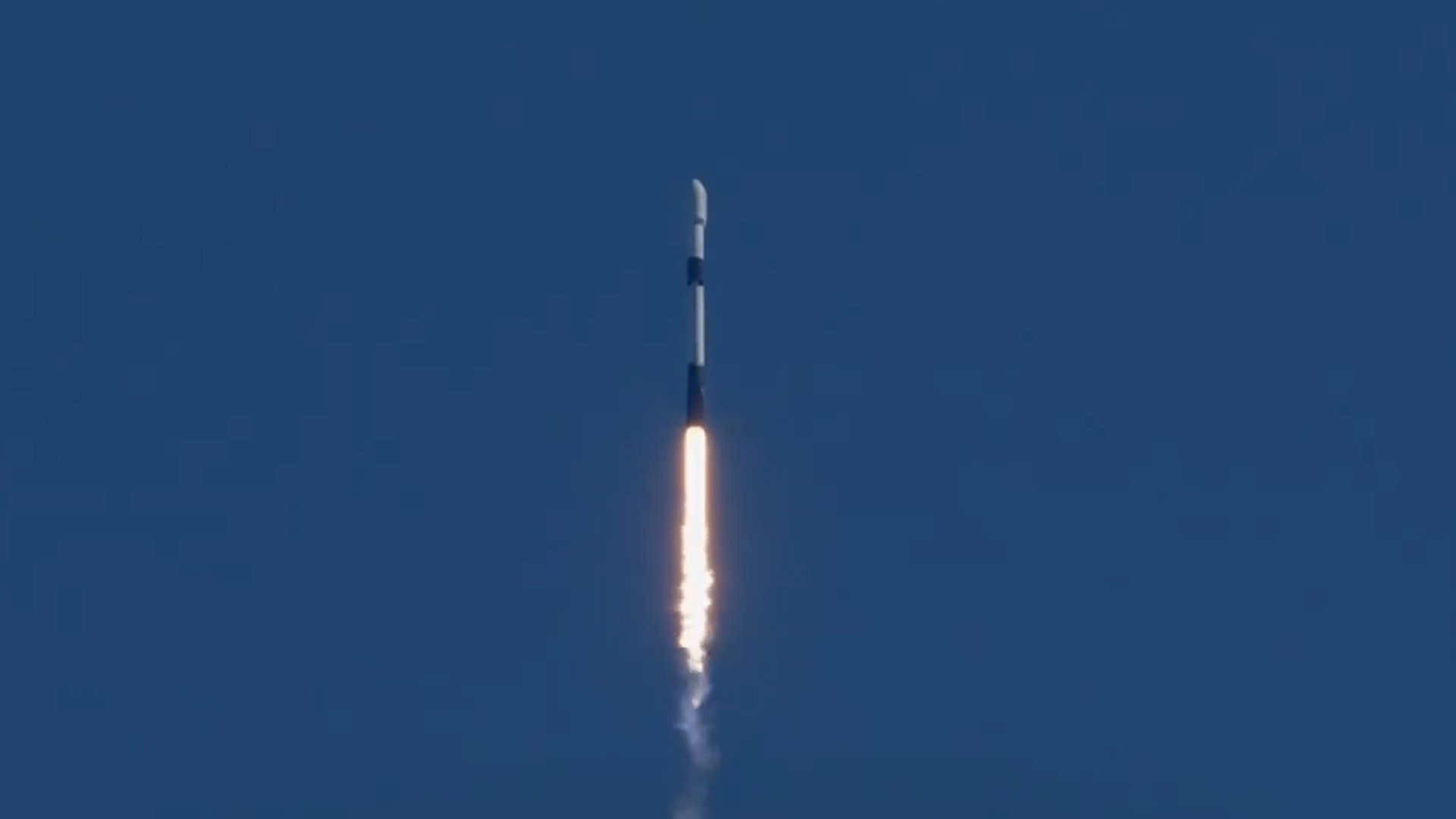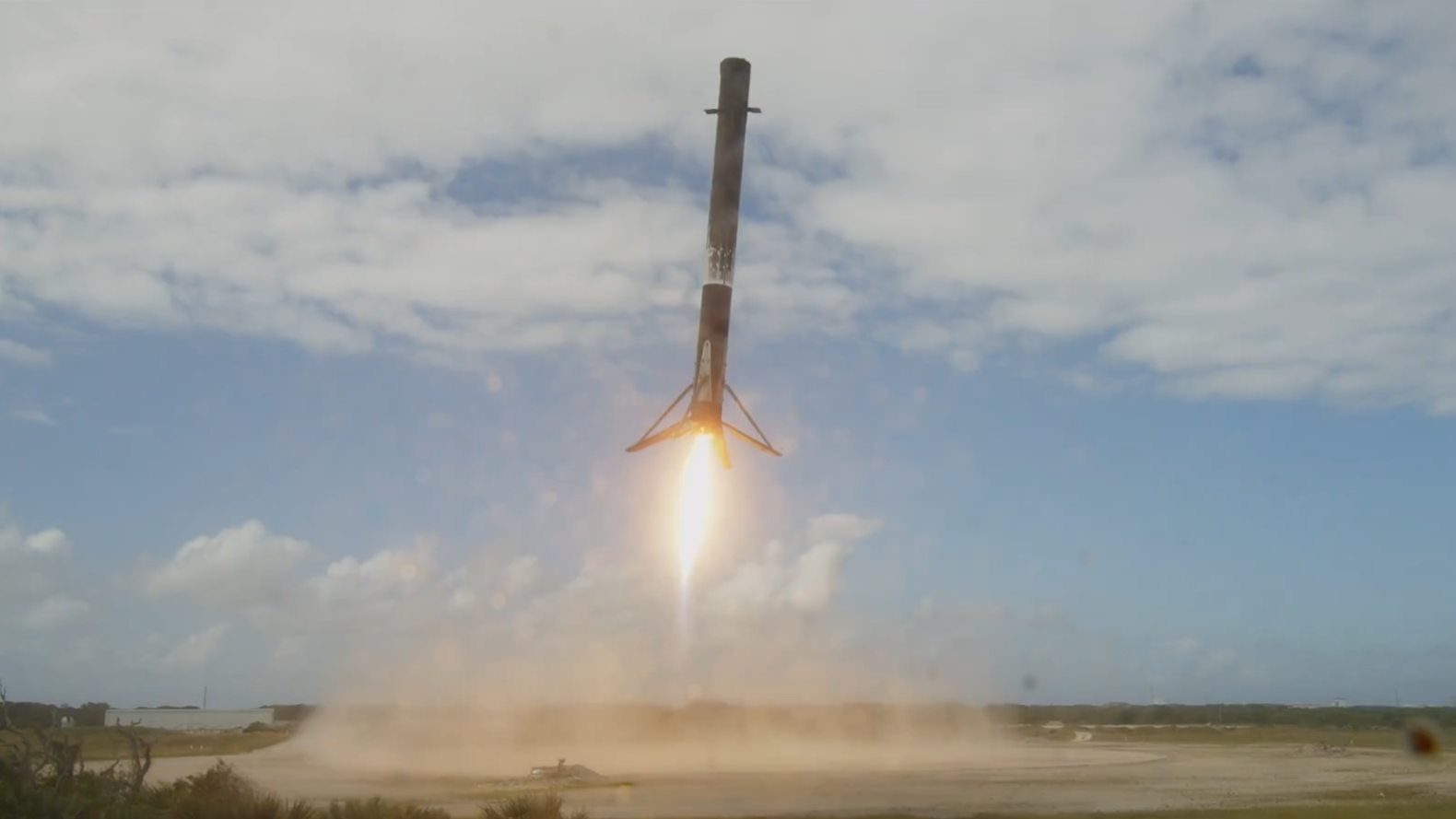SpaceX rocket launches Koreasat-6A satellite, lands Falcon 9 booster on record-tying 23rd flight (video)
SpaceX tied its rocket-reuse record today (Nov. 11).
A Falcon 9 rocket launched the KoreaSat-6A telecom satellite from NASA's Kennedy Space Center (KSC) in Florida today at 12:25 p.m. EST (1625 GMT). It was the 23rd mission for this rocket's first stage, according to SpaceX, equaling a mark set by two other Falcon 9 boosters.
Some eight minutes and 20 seconds into the flight, SpaceX's Falcon 9 booster landed at Landing Zone 1 at Cape Canaveral Space Force Station. This was this first stage booster's 23rd landing, and SpaceX's 364th landing of an orbital-class rocket overall, including boosters for both Falcon 9 and Falcon Heavy. It was the company's 107th successful launch of the year.

The Falcon 9's upper stage, meanwhile, continued hauling KoreaSat-6A to geosynchronous transfer orbit, deploying it there about 34.5 minutes after launch.
The 3.9-ton (3.5 metric tons) KoreaSat-6A will now make its way to geostationary orbit, which lies 22,236 miles (35,786 kilometers) above Earth. At this altitude, orbital speed matches our planet's speed of rotation, allowing spacecraft to "hover" over the same patch of ground. For this reason, geostationary orbit is a popular destination for spy and weather satellites, as well as communication craft such as KoreaSat-6A.

"KoreaSat-6A will replace the current KoreaSat-6 satellite and will deliver both fixed satellite service (FSS) and broadcasting satellite service (BSS) to South Korea," Thales Alenia Space, the French company that built the new satellite, said in a statement last year.
"Built on Thales Alenia Space's proven Spacebus 4000B2 platform, KoreaSat-6A will be fitted with six BSS transponders and twenty FSS transponders to cover all of South Korea," the company added.
Breaking space news, the latest updates on rocket launches, skywatching events and more!
KoreaSat-6A will be operated by the South Korean company KT SAT Corporation Ltd. The satellite's expected lifetime is 15 years.

Rapid and repeated rocket reuse is a key priority for SpaceX, as today's mission shows.
The company plans to ramp up the reuse even more in the future: Its next-generation megarocket, Starship, is designed to be fully reusable, with both of its stages coming back to land atop the launch mount. SpaceX's two currently operational rockets, the Falcon 9 and Falcon Heavy, feature expendable upper stages.

Michael Wall is a Senior Space Writer with Space.com and joined the team in 2010. He primarily covers exoplanets, spaceflight and military space, but has been known to dabble in the space art beat. His book about the search for alien life, "Out There," was published on Nov. 13, 2018. Before becoming a science writer, Michael worked as a herpetologist and wildlife biologist. He has a Ph.D. in evolutionary biology from the University of Sydney, Australia, a bachelor's degree from the University of Arizona, and a graduate certificate in science writing from the University of California, Santa Cruz. To find out what his latest project is, you can follow Michael on Twitter.
